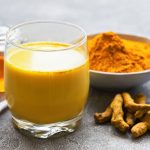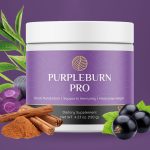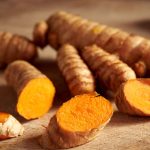Turmeric, a vibrant yellow spice derived from the root of the Curcuma longa plant, has long been celebrated in traditional medicine systems like Ayurveda and Traditional Chinese Medicine. Its use dates back centuries, primarily for its potent anti-inflammatory and antioxidant properties. In recent years, turmeric has gained significant attention in Western countries, becoming a popular supplement for its potential health benefits.
The Active Compound: Curcumin
The primary active compound in turmeric is curcumin, which constitutes about 3-5% of the spice. Curcumin is renowned for its potent anti-inflammatory and antioxidant properties. Due to these properties, curcumin has been the subject of extensive research, particularly about its potential role in managing chronic diseases like arthritis, cardiovascular diseases, and even certain cancers.
Anti-Inflammatory and Antioxidant Effects
Inflammation is a natural response of the immune system to injury or infection, but chronic inflammation can lead to numerous health problems, including heart disease, cancer, and Alzheimer’s disease. Curcumin has been shown to inhibit various molecules that play a key role in inflammation, making it a potent anti-inflammatory agent. According to studies, curcumin can inhibit the activity of nuclear factor-kappa B (NF-κB), a molecule that controls the expression of inflammation-related genes.
Moreover, curcumin's antioxidant properties help neutralize harmful free radicals, thereby reducing oxidative stress. Oxidative stress is linked to various diseases, including neurodegenerative conditions like Alzheimer’s. Curcumin helps protect cells from damage by scavenging free radicals and enhancing the activity of other antioxidant enzymes.
Turmeric and Arthritis Relief
Arthritis, characterized by inflammation and joint pain, is a common ailment affecting millions worldwide. There are two primary types of arthritis: osteoarthritis and rheumatoid arthritis. Research suggests that curcumin's anti-inflammatory properties can benefit both types.
A study published in the National Center for Biotechnology Information (NCBI) highlighted that turmeric extracts and curcumin significantly reduced symptoms of joint arthritis. The study revealed that patients who consumed curcumin showed a considerable decrease in joint pain and swelling compared to those who did not. This has made turmeric a popular natural remedy for those seeking to manage arthritis symptoms without relying solely on conventional medications.
Cardiovascular Health
Heart diseases are the leading cause of death globally. Several factors contribute to heart disease, including chronic inflammation. Curcumin's anti-inflammatory properties have shown promise in improving heart health. Studies have indicated that curcumin can improve the function of the endothelium and the lining of blood vessels, thereby enhancing vascular function.
Furthermore, curcumin has been found to help reduce the risk of heart disease by improving the health of the endothelium, regulating blood pressure, and reducing oxidative stress. A study published in the Journal of Nutrition demonstrated that curcumin reduces the level of LDL cholesterol (bad cholesterol), a significant risk factor for heart disease.
Turmeric in Cancer Prevention and Treatment
Curcumin's anti-cancer properties are among the most studied aspects of this compound. It has shown potential in inhibiting the growth of cancerous cells and preventing the spread of tumors. Research indicates that curcumin can interfere with cancer development through its ability to reduce inflammation, neutralize free radicals, and inhibit cell proliferation.
Studies suggest that curcumin can affect cancer at multiple stages: it can help prevent cancer by reducing inflammation and oxidative stress, inhibit tumor growth by blocking cell proliferation, and even kill cancer cells. While more research is needed to fully understand the mechanisms, the existing evidence is promising enough to consider curcumin as part of a broader cancer treatment strategy.
Turmeric for Brain Health
Curcumin may also have protective effects on the brain. Neurodegenerative disorders like Alzheimer’s disease are closely linked to chronic inflammation and oxidative stress. Curcumin's ability to cross the blood-brain barrier allows it to potentially clear amyloid plaques, a hallmark of Alzheimer’s disease, and reduce inflammation in the brain.
Furthermore, curcumin has been shown to increase brain-derived neurotrophic factor (BDNF) levels. This protein supports the survival of existing neurons and encourages the growth of new neurons and synapses. Low levels of BDNF have been associated with conditions such as depression and Alzheimer's disease, so curcumin's effect on increasing BDNF levels could be beneficial for brain health.
Managing Depression
Depression is a serious and widespread condition that impacts millions worldwide. Emerging research suggests that curcumin may have antidepressant effects. The compound's ability to boost BDNF levels and its anti-inflammatory and antioxidant properties contribute to its potential as a natural antidepressant.
A study found that curcumin was as effective as Prozac, a commonly prescribed antidepressant, in reducing symptoms of depression. This result highlights the potential for curcumin to be used as a complementary treatment for depression, offering a natural alternative to pharmaceuticals with fewer side effects.
How to Incorporate Turmeric in Your Diet
Turmeric can be incorporated into your diet in various ways. The most traditional method is using spices in cooking. It’s a key ingredient in many Indian dishes, adding flavor and color to curries, soups, and stews. Curcumin's bioavailability, its ability to be absorbed and used by the body, is relatively low. However, combining turmeric with black pepper, which contains piperine, can enhance the absorption of curcumin by up to 2000%.
Another way to consume turmeric is through supplements, which are widely available and often combined with other compounds like piperine to improve bioavailability. It's essential to consult with a healthcare provider before starting any supplement regimen, especially if you have underlying health conditions or are taking other medications.
Potential Side Effects and Precautions
While turmeric is generally considered safe when consumed in food amounts, taking it in medicinal doses can cause side effects in some individuals. Potential side effects include stomach upset, nausea, dizziness, or diarrhea. High doses of turmeric or curcumin supplements may also pose risks.
People with gallbladder issues should avoid turmeric supplements, as they can worsen the condition. Similarly, individuals on blood-thinning medications should exercise caution, as turmeric can enhance the effects of these drugs, increasing the risk of bleeding. Pregnant and breastfeeding women should consult their healthcare provider before taking turmeric supplements due to potential risks to the fetus or infant.
For more information on the potential risks and interactions, you can visit WebMD.
Turmeric in Traditional Medicine
The use of turmeric in traditional medicine is well-documented. In Ayurveda, turmeric is used to balance the doshas (Vata, Pitta, and Kapha) and is applied as a remedy for various ailments, including digestive disorders, respiratory issues, and skin problems. Traditional Chinese Medicine uses turmeric to move Qi and alleviate pain and stagnation.
These traditional practices provide a foundation for modern scientific research, validating many of the ancient health claims associated with turmeric. Integrating traditional knowledge and modern science is crucial in understanding the full spectrum of turmeric's health benefits.
Future Research Directions
Despite the wealth of research supporting the health benefits of turmeric and curcumin, future studies are necessary to elucidate their mechanisms and potential applications fully. Clinical trials with larger sample sizes and longer durations are needed to confirm the efficacy and safety of curcumin for various health conditions.
Moreover, exploring new formulations and delivery methods to enhance curcumin's bioavailability remains a critical area of research. Innovations such as curcumin nanoparticles, liposomal curcumin, and phospholipid complexes are being investigated to improve absorption and therapeutic outcomes.
Conclusion
Turmeric, with its active compound curcumin, offers many potential health benefits supported by both traditional use and modern scientific research. Its anti-inflammatory, antioxidant, and neuroprotective properties make it valuable to a healthy diet and lifestyle. Whether used in cooking or as a supplement, turmeric holds promise as a natural remedy for various ailments, from arthritis and heart disease to cancer and depression.
However, as with any supplement, it is crucial to consult a healthcare provider to ensure its safe and effective use, particularly for individuals with existing health conditions or those taking other medications. The future of turmeric research looks promising, with ongoing studies likely to uncover even more about this golden spice's potent health benefits.
For further insights and detailed studies, you can visit reputable sources such as Medical News Today and Arthritis Health.
Turmeric's journey from ancient spice to modern superfood underscores its timeless appeal and enduring significance in promoting health and well-being. Embrace the golden touch of turmeric to unlock a healthier, vibrant life.










